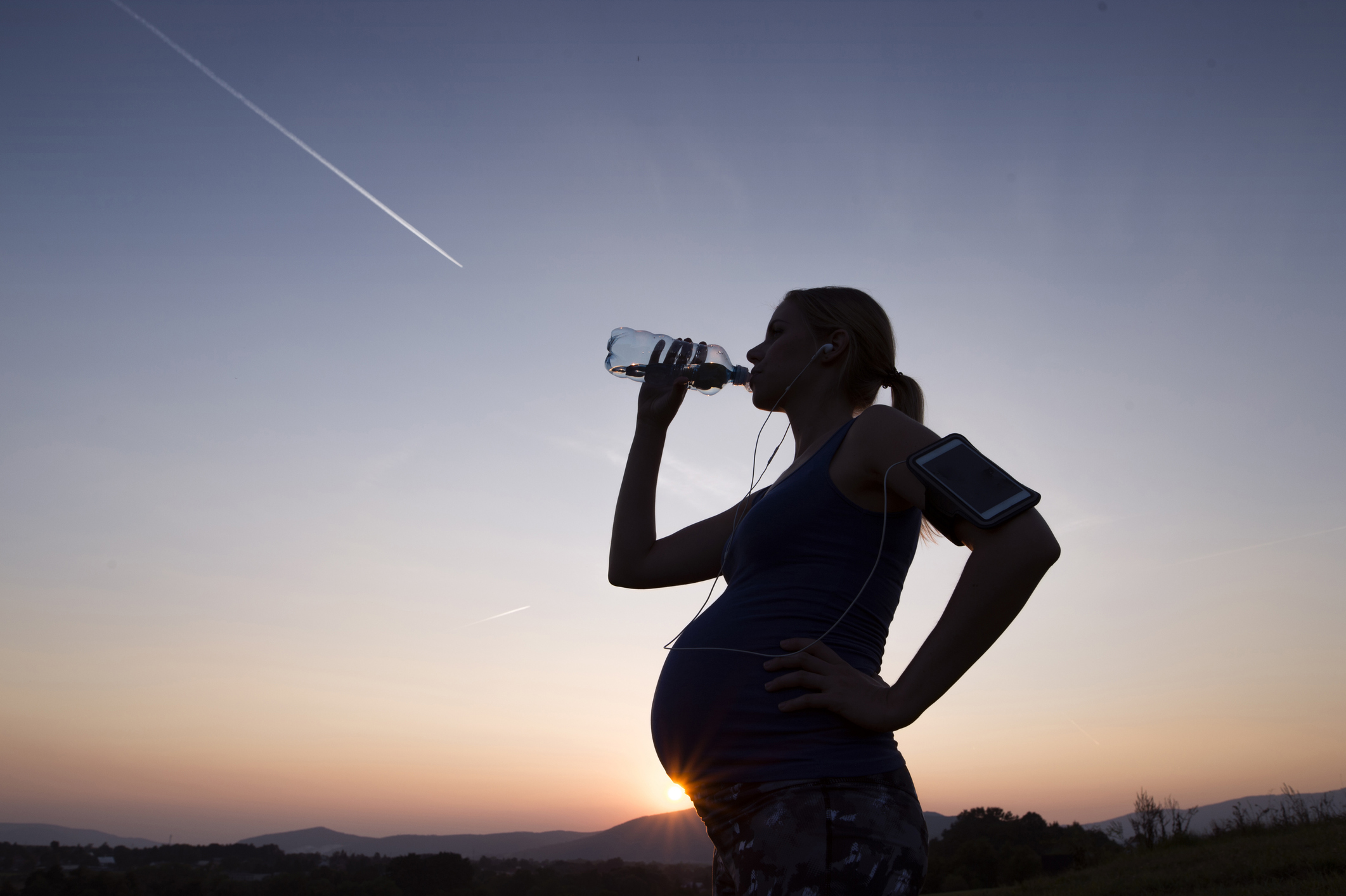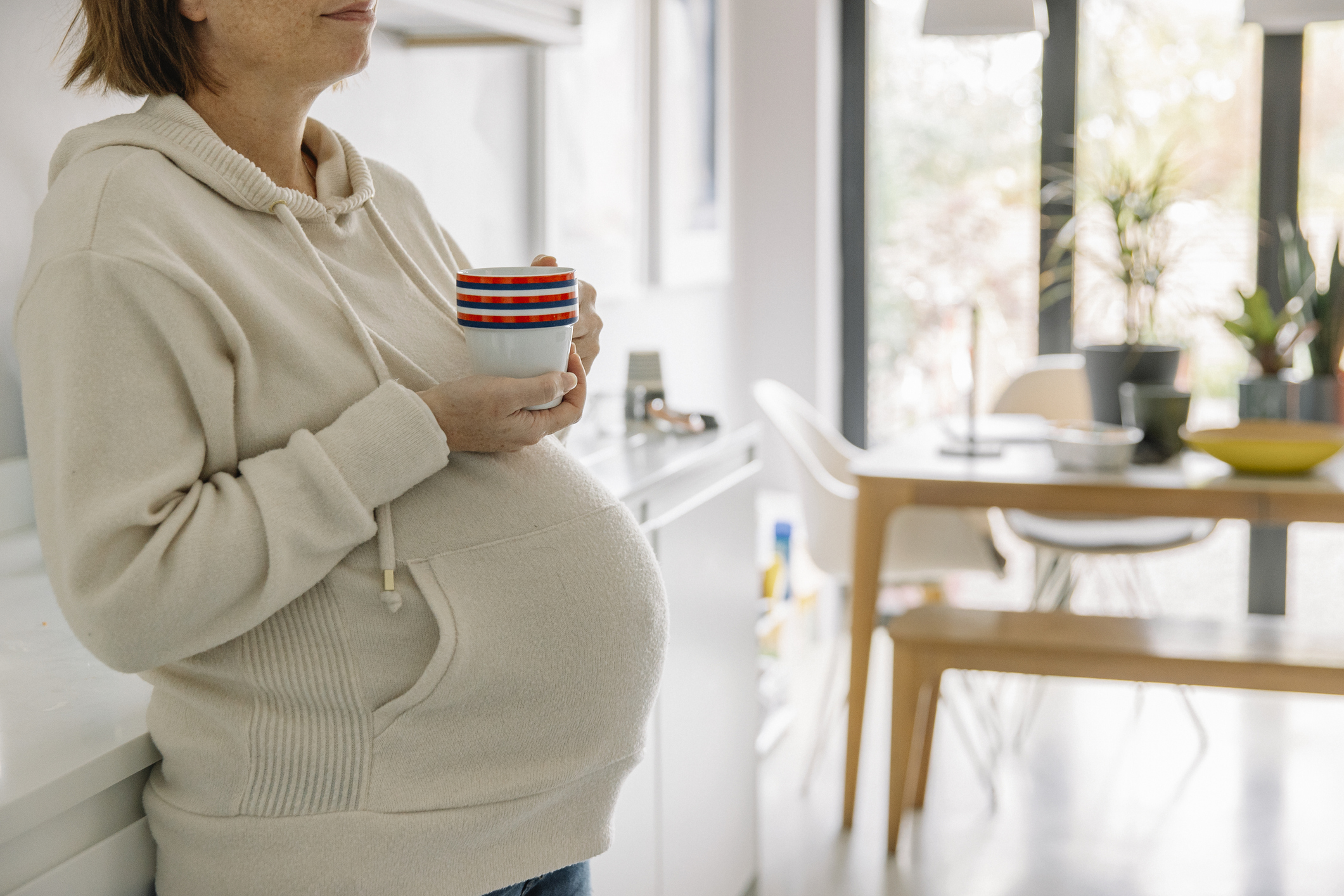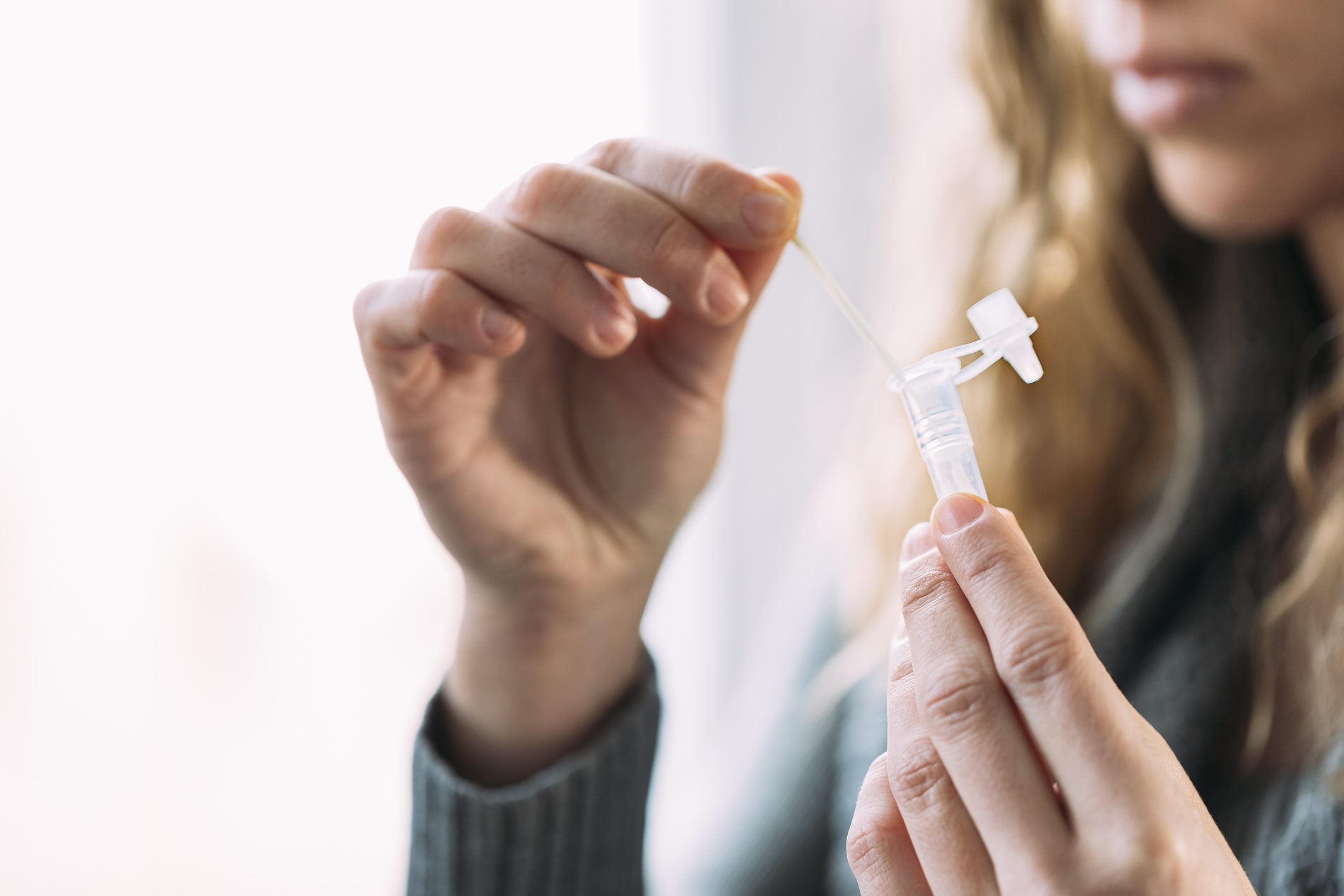
Like, did you know - long Covid symptoms may be affecting perimenopausal and menopausal women more than others?
If you, like the millions of others across the UK, have suffered from Covid-19 in the last few years, you'll know that some symptoms can last far longer than the ten days you're infectious.
While initially the typecast saw middle-aged men as the worse affected, as time has passed, two clear camps have formed - those most easily infected by Covid-19, and those who experience debilitating longer-term symptoms in the form of long Covid. For the latter, the Covid Symptom Tracker app and other research confirm that more young to middle-aged women are dealing with long-term health issues.
Long Covid refers to the symptoms you experience when you're no longer testing positive for Covid-19 and, according to the NHS, spans shortness of breath, extreme tiredness, chest pain or tightness, brain fog, insomnia and more. At current, many women worldwide are still experiencing said side effects years on.
So, why are women suffering more than men? What's the link between long Covid and hormones? There's been plenty of research into women's fertility and the Covid vaccine, alongside how Covid-19 affects periods. But can long Covid affect those going through hormonal changes, such as menopause, more, and may women with conditions like PCOS also be more susceptible?
Keep scrolling to find out what the latest research thinks. Wondering why you haven't had Covid yet? A doctor explains seven reasons, here.
Covid and hormones: what the research has found so far
Interestingly, long Covid has been found to be more common in women. Similarly, women are generally more susceptible to post-viral syndromes such as the common cold and flu.
Celebrity news, beauty, fashion advice, and fascinating features, delivered straight to your inbox!
Why? We don't exactly know, but what we do know is that hormones are likely a factor.
1. Covid-19 causes hormonal changes
As Dr Amy Beckley, PhD, explains, COVID can and has absolutely caused hormonal changes. "Typically we see that women have lower estrogen and ovulate later in the cycle," she shares. "I think it is because while the body is sick, the brain tells the ovaries it is not a good time to carry a baby. The good news is that most cycles return to normal within two to three cycles after the infection clears."

2. The hormone estrogen helps your cells fight infections
It's long been accepted that estrogen and their receptors in the body can help your immune response. How? Well, according to one 2022 study, "one way that estrogens influence adaptive immunity is by impacting levels of circulating antibodies."
3. Low estrogen and progesterone levels are likely to be associated with Long Covid
But if your body is low on estrogen or progesterone? Well, good question. One study published in J Immunol in 2020 found that women who experience low estrogen levels experienced more severe cases of Covid-19.
As Dr Beckley explains, progesterone is an immune modulator, which means it acts to decrease the immune response. "During COVID, some people have a heightened immune response (cytokine storm) that causes long COVID and serve symptoms. Women that have high progesterone and estrogen levels don't mount a strong immune response to the COVID virus, therefore are less likely to die."
While this is yet to be scientifically cemented, several scientists and professors have floated the idea that long Covid may be more likely in women who have low estrogen levels, and that long Covid symptoms might, in turn, be improved by higher estrogen levels.

4. As a woman over 50, you're at a 50% lower risk of dying from Covid-19 if you take HRT
Similarly, women over the age of 50 who were taking hormone replacement therapy medication were at a medical advantage to those who weren't.
How so? Well, a 2020 study with analyses the public health records of just under 70,000 women who'd had Covid showed that those on HRT treatment were 50% less likely to pass away from the virus than those who weren't.
5. Long Covid is thought to improve with estrogen replacement
You'll remember the headlines from last year when women started reporting irregular periods as a result of Covid-19. Well, one online survey found as many as 73% of women had noticed a difference post-infection.
Another fun fact: your ovaries product both estrogen and testosterone, and when you go through perimenopause or menopause, their levels in your body get lower.
Scientists have hypothesised that long Covid symptoms - and indeed, irregular periods - might improve with regular estrogen levels.
6. Post-menopausal women have been found to suffer from more severe infection
And finally, two studies - one paper published in the British Medical Journal in 2020 and one Rxiv paper published in the same year - found a correlation between post-menopausal women and more severe infections of Covid-19.
Bottom line? It appears that there's a link between Covid-19 and women's hormones, but more research needs to be done on the matter for us to fully work out how, why and when the virus does this.

"Covid-19 wreaked havoc on my hormone levels. Here's how I recovered."
Arie* , 27, a mental health technician from Virginia, faced her own challenges with Covid-19 and her hormone levels - and was able to track her body's changing levels via a hormone tracker, Proov.
"When I decided to begin trying to conceive, I wanted to do anything and everything in my power to get pregnant sooner. So, like many other women, I did my research. I already knew I’d be taking a pregnancy test each month, but I quickly learned about other hormone tests that could help me reach my goals."
"One big thing I learned right away was that, contrary to popular belief, you can’t just get pregnant by having intercourse any old day. The best time to try for a baby is actually right around ovulation, since that’s when the sperm has the highest chance of meeting an egg. I started using ovulation tests each cycle to help identify my most fertile days."
"While researching the best ovulation tests, I came across Proov Predict & Confirm and discovered that understanding ovulation timing is really only part of the story. The Predict & Confirm kit contains two different types of test strip: ovulation tests that help pinpoint the best time to “try,” plus a second test (called a PdG test) that you use to follow up a few days after ovulation."
"PdG tests give a whole new level of insight by confirming whether ovulation did in fact occur and helping you understand the quality of that ovulation. (Yes, there is such a thing as higher and lower-quality ovulation!)."
"I first used Proov in November of 2021. In November and December, my initial tests correctly anticipated that ovulation was coming soon, and my follow-up PdG tests confirmed I did in fact ovulate at high quality. I was thrilled, and my optimism about getting pregnant went sky-high."
"After my second series of promising test results, I was sure I was going to be pregnant by the end of the year. In fact, I even started developing early pregnancy symptoms toward the end of my cycle; specifically, a minor head cold. But that’s when things got complicated."

"As my congestion worsened, I realised it wasn’t pregnancy symptoms after all. I tested positive for COVID-19, and on top of that bad news, my period started – a total letdown."
"After recovering from COVID, I eagerly resumed my trying-to-conceive journey. I was excited and confident since my first two cycles of testing had gone so well. But in my first post-COVID cycle, my results were a shock."
"My hormones had shifted wildly from healthy pre-COVID levels to measurements that were completely out of expected range. My ovulation tests turned positive at random points in my cycle, and my PdG levels never rose to their previous high-quality level. Without healthy PdG levels following ovulation, I knew pregnancy was unlikely."
"I felt crushed, and worse, it never occurred to me that COVID might be to blame. I had no idea why my body was behaving the way it was, and I feared my chances of becoming pregnant could be mysteriously slipping away."
"Anxious and confused, I turned to the private Proov support group – a group of users and other women trying to conceive where I was introduced to Proov’s founder and CEO, Amy, who personally reviewed my hormone patterns. To my relief, she pointed out that my wacky levels might be a lingering impact of COVID that would likely sort itself out over time. “Keep testing!” she urged me."
"So that’s what I did. Next cycle, while my hormones hadn’t returned to their prior healthy levels, they did shift in the right direction. And the following month things really started looking up. In the Proov Insight app, which I use to track my test results, I could actually see the improving trends. Slowly but surely, my results were returning to the healthy patterns I’d seen in my first cycle."
“See?” Amy messaged me. “I knew your cycle would figure itself out." And she was right – my cycle has returned to normal. I’m now seeing consistent positive ovulation tests before ovulation and perfect PdG patterns after ovulation – indicating that my body is ready for pregnancy. It’s incredibly reassuring to have actual data showing that my cycle hormones have fully recovered, and I’m back on track for success."
"COVID-19, or any significant health issue, can wreak havoc on your fertility hormone levels. But the good news is, in most cases, the body just needs some time to readjust. I recommend easy at-home testing to anyone who craves some extra peace of mind when trying to conceive. For me, it’s made all the difference."

Ally is Marie Claire UK's Senior Health and Sustainability Editor, a well-regarded wellness expert, ten-time marathoner, and Boston Qualifying runner.
Utilising her impressive skillset and exceptional quality of writing, she pens investigative, review and first-person pieces that consistently demonstrate flair and originality.
As well as writing, Ally manages a team of freelancers, oversees all commissioning and strategy for her pillars, and spearheads the brand's annual Women in Sport covers, interviewing and shooting the likes of Mary Earps, Millie Bright, and Ilona Maher. Shortlisted for three BSMEs and winning one in 2022, Ally lives and breathes her verticals: her eye for a story and connections within the wellness sphere are unrivalled. Follow Ally on Instagram for more.
